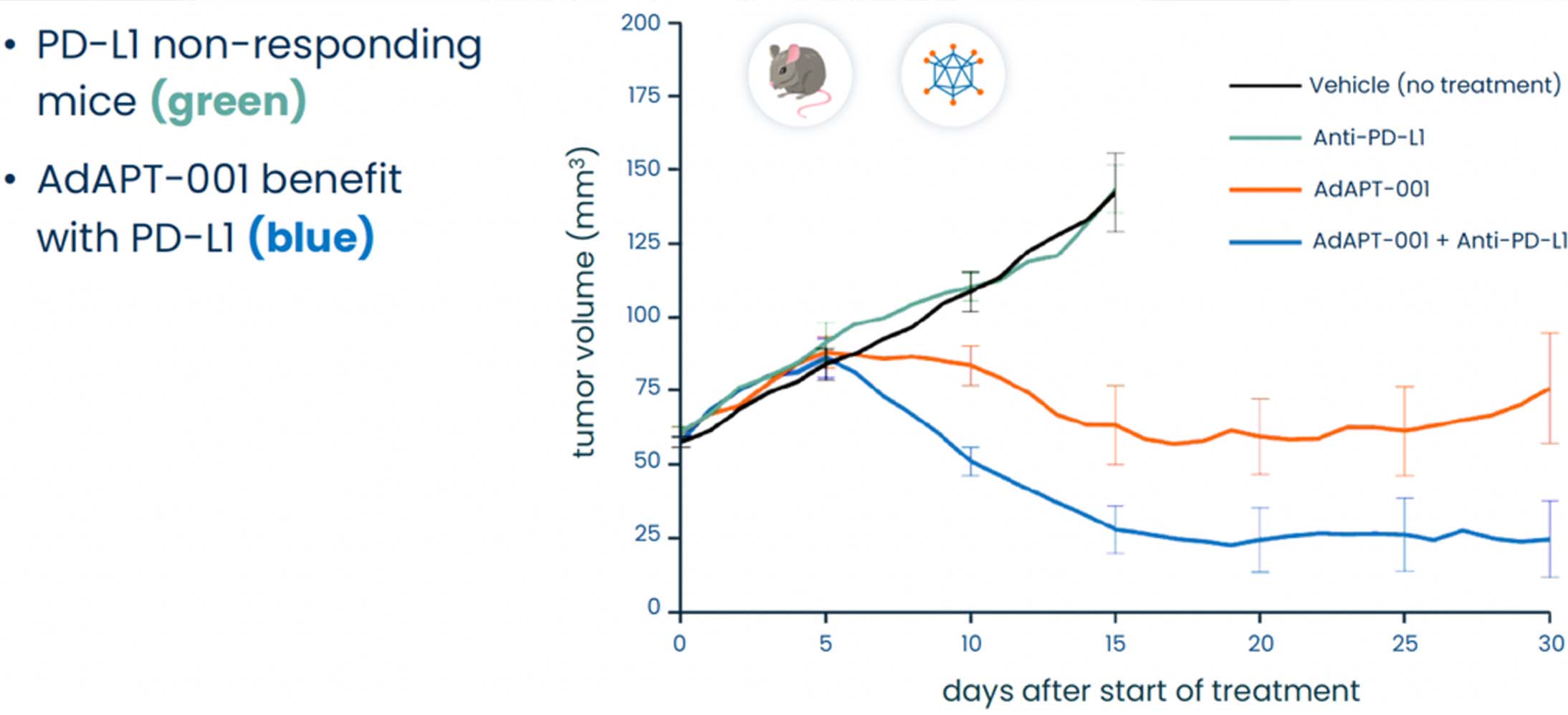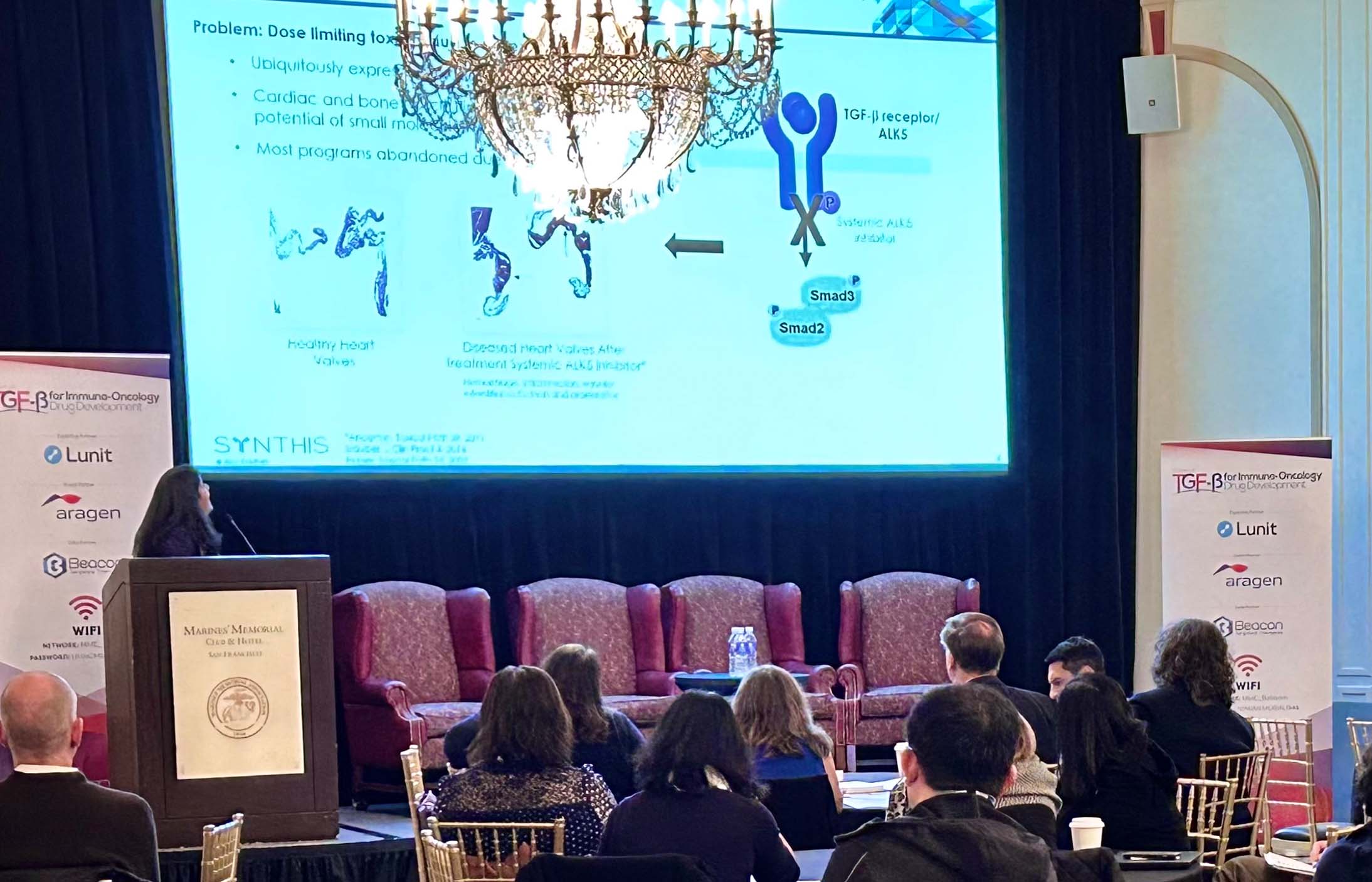For EpicentRx, 2023 has already been transforming—as in transforming growth factor beta (TGF-ß), which is overexpressed in most tumors. TGF-ß is a cytokine, a small protein that cells use to communicate with each other, normally released in wound areas following tissue damage. In wounds, TGF-ß instructs tolerance and suppresses inflammation, which tumors, crafty and treacherous as they are, co-opt to turn down the anticancer immune response. Because of this adverse effect on the anticancer immune response, EpicentRx has engineered an oncolytic adenovirus, AdAPT-001, which carries and expresses a TGF-ß trap that binds to and neutralizes TGF-ß in the tumor microenvironment, which surrounds and supports the tumor. An adenovirus is an agent of the common cold, which usually causes mild symptoms like cough, sore throat and, occasionally, pink eye.
For AdAPT-001, the adenovirus has been modified to only infect and replicate in cancer cells, not normal ones, so patients tend not to experience substantial side effects. AdAPT-001 is currently in a Phase 1/2 clinical trial called BETA PRIME (NCT04673942), and preliminary data indicates activity particularly in TGF-ß-driven tumors like sarcoma. In BETA PRIME, AdAPT-001 has been given as a single agent and in combination with checkpoint inhibitors (CIs), since high levels of TGF-ß predict resistance to CIs. In preclinical studies, the combination of AdAPT-001 with CIs makes CI-resistant tumors sensitive to them, as the graph below demonstrates.
Figure 1. AdAPT-001 sensitizes anti-PD-L1 checkpoint inhibitor-resistant tumors to an anti-PD-L1 checkpoint inhibitor

Armed with this data, Dr. Tony R. Reid, CEO of EpicentRx, presented at the 3rd TGF-β for Immuno-Oncology Drug Development Summit in San Francisco and held forth at a TGF-β round table, where he discussed the potential advantages of AdAPT-001 over the several TGF-β inhibitor antibodies that are in the clinic. The TGF-β for Immuno-Oncology Drug Development Summit is a conference which aims to bring together all the major players in the TGF-β field. In attendance were Pliant, Scholar Rock, Corbus Pharmaceuticals, Genentech, Pfizer, Oncotelic, and Sanofi Genzyme.
Dr. Reid explained that unlike AdAPT-001, which directly kills cancer cells, TGF-β inhibitor antibodies only indirectly eliminate them. This is important because as cancer cells die, they release proteins, which is often sufficient to activate an immune response. Dr. Reid also believes that because of many barriers in the tumor, which impede drug delivery, the large size of the TGF-β inhibitor antibodies prevents adequate tumor penetration and distribution. Dr. Reid also discussed the favorable safety profile of AdAPT-001, which so far in 30 patients dosed, both alone and in combination, has been very well tolerated with no dose limiting toxicities or related serious adverse events.

Overall, the conference was very well organized and attended, with a robust, interactive crowd. Dr. Reid’s presentations drew interest and attention from academics, clinicians, and scientists, since AdAPT-001 is the only oncolytic virus ever in development to be armed with a TGF-β trap. So, in summary, 2023 is off to a transforming start—for EpicentRx certainly and, hopefully, also for cancer patients that receive treatment with AdAPT-001.
